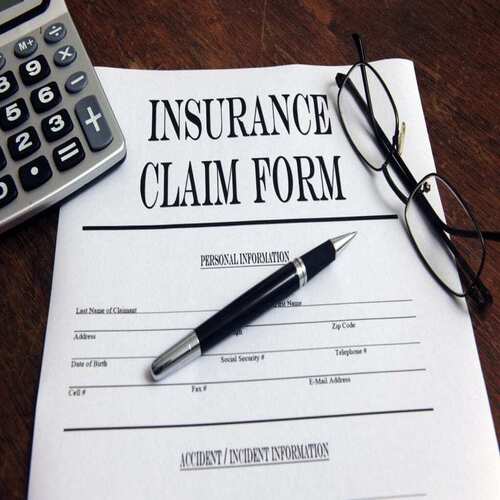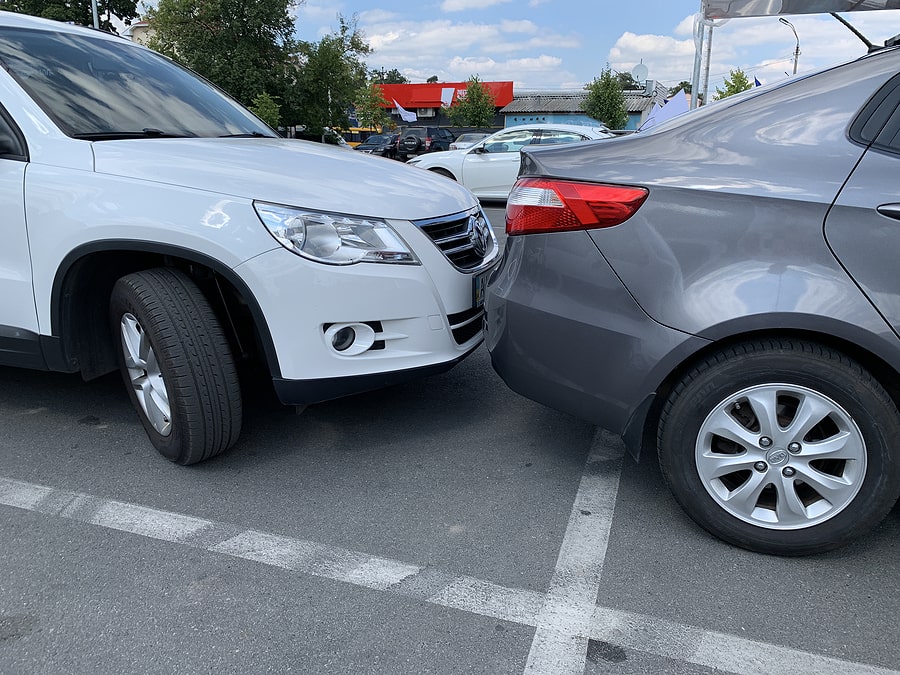Did you suffer serious injuries in an accident?
Are you finding yourself confused by the terminology used by the insurance adjusters or the party that caused your accident? Not to worry!
Take a look at this guide to get a better idea of what different types of insurance claims might look like and what you can expect as you file a claim.
What Is an Insurance Claim?
An insurance claim allows you to file for compensation under the terms of an insurance policy. You might file a claim for compensation through your own insurance policy or through the insurance policy of a party who causes injury to you through an act of negligence.
Any losses and expenses you endure as a result of the accident are known as your “damages.” An insurance claim typically includes the financial damages you suffered in your accident. If you file a claim through your own insurance policy, you might ask for financial compensation for repairs you need to make to your home or vehicle, as those repairs would fall under “property damage.” If you file a claim with another party’s insurance, you might choose to include compensation for medical expenses due to an accident or compensation for pain and suffering related to injuries caused by the other party.
Insurance Claims: Understanding the Basics
The type of insurance claim you need to file will depend on what type of damage you suffered and who caused it. Make sure you take a close look at your policy! If necessary, consider having an attorney review your policy or the policy of the driver that caused your accident so you can get a better idea of the amount of compensation you should expect. An experienced personal injury lawyer knows how to identify all liable parties in order to pursue maximum compensation after any accident.
Auto Insurance Claims
You may have grounds to file an auto insurance claim following an auto accident. Depending on the extent of your insurance coverage, you may also have grounds to file an auto insurance claim if your vehicle suffers damage due to another type of incident, including natural disasters (“acts of God”) or theft.
You may need to investigate:
- Liability insurance. Liability insurance provides coverage when you cause an auto accident due to an act of negligence. If you cause an accident, liability insurance will pay out for the other driver’s injuries and damage to that driver’s vehicle, but will not pay for the damage to your vehicle or for the injuries you suffered. On the other hand, if the other driver caused your accident, you can rely on that driver’s liability coverage to cover damages to your vehicle and compensation for injuries sustained in the accident. Bodily injury protection and vehicle damage usually fall under separate sections of a liability insurance policy.
- Collision coverage. Collision insurance for your vehicle will provide liability coverage if you hit another vehicle and coverage for your vehicle if it is damaged in an accident that you caused. Many drivers choose to carry collision coverage to help replace or repair their vehicles in case they cause an accident.
- Comprehensive coverage. Comprehensive auto insurance covers damage sustained to your vehicle for any reason. Not only does it cover much-needed compensation if you cause damage to someone else’s vehicle, it can provide compensation if you suffer serious damage to your vehicle due to theft, vandalism, or an act of nature. For example, if a tree falls on your car during a hurricane or your car gets stolen, comprehensive coverage should provide the help you need!
- Uninsured/underinsured motorist coverage. Unfortunately, way too many drivers take to the road without adequate auto insurance. In Texas, for example, an average of 14% of drivers do not carry auto insurance! Even more carry only minimum liability insurance. If you get into an accident with one of those drivers, their policy may not provide adequate coverage for your vehicle damage or your injuries—especially if you drive an expensive vehicle or suffer severe injuries. Ouch! Underinsured or uninsured motorist coverage kicks in to provide compensation when the other driver does not carry adequate coverage.
Property Insurance
Property owners typically carry insurance for two key reasons:
- To protect them if something happens to damage that property
- To protect them if someone suffers a serious injury on that property
If you suffered a serious injury on someone else’s property due to an act of negligence on the part of that individual or entity, you can file for compensation for your medical expenses and lost wages. On the other hand, if you suffer serious damage to your property due to events beyond your control, you will need to turn to your insurance for compensation.
Medical Malpractice Insurance
Doctors and medical facilities typically carry medical malpractice insurance to help protect themselves and provide compensation for individuals who suffer serious injuries due to the negligent action of medical practitioners. Medical malpractice insurance may cover compensation for the failure to properly treat a patient, including everything from misdiagnosis to never events. (A “never event” is an extreme mistake such as operating on the wrong patient or the wrong body part or leaving a foreign device inside a patient.)
Business Insurance
Many businesses, including construction companies, carry specific policies that will protect them when employee negligence results in an accident on the job. Did you suffer a slip and fall in a business? You may need to pursue compensation through business liability insurance. Have an accident on a construction site? You may need to deal with the construction company’s business insurance as you seek compensation.
Filing an Insurance Claim: What to Expect
The liable party—the party that caused your accident due to negligence—usually relies on the insurance company to pay for any damages you suffered due to that party’s negligence.
Unfortunately, that leaves you dealing with the insurance company, and possibly the insurance company’s lawyers, to get the compensation you deserve. It can be a frustrating mess of phone tag, paperwork, and manipulation.
Sound daunting? Luckily, you do not have to handle that process on your own! An experienced personal injury attorney can help you file your claim and get a better idea of what to expect throughout the legal process.
Contact a Personal Injury Attorney First!
Ideally, before you start dealing with the liable party’s insurance company, you should contact an experienced personal injury attorney.
The insurance adjuster might sound sympathetic. They might listen to your story and even claim to care about the compensation you receive. Unfortunately, the insurance company often focuses on limiting its financial liability as much as possible, not on offering as much compensation as you deserve.
An attorney, on the other hand, can fight for you! Unlike the insurance company, the attorney has your best interests in mind. Because personal injury attorneys work on a contingency basis, they don’t get paid until you do, so you can be sure your goals will always align with theirs.
An attorney can gather evidence about your claim and put together a compelling case that will show how much compensation you really deserve for your injuries and why. Often, the attorney can provide you with valuable insights into your case—and even prevent you from accepting a settlement offer that fails to reflect the amount you deserve!
Negotiations
In some cases, you may get the first settlement offer before the dust even has a chance to settle after your accident. The insurance company may contact you while you sit in a hospital bed, overwhelmed, in pain, and anxious, waiting to discover the compensation you really deserve for your accident.
Logically, that offer cannot accurately reflect the extent of your medical bills or your long-term suffering, because even your doctors do not yet know what your recovery will look like!
Always talk to an attorney before accepting any offer.
Your attorney will start by putting together a demand package that includes the compensation they believe you deserve, evidence about your claim, and evidence regarding your injuries and how they limit your life. You may need to undergo a thorough medical evaluation to give the insurance company a better idea of the extent of your injuries.
Then, the insurance company will respond to your demands—usually by issuing a lower settlement offer. You can then either decide to accept the offer or continue to negotiate for additional compensation.
Settlement
Most of the time, personal injury claims will settle out of court. The insurance company knows that going to court can mean an expensive legal battle, often one that will result in the company having to pay more than if they simply pay the settlement you deserve upfront.
Once both sides agree, you will sign a settlement offer. The settlement offer reflects a legally binding agreement: the insurance company agrees to pay you a specific amount in compensation for your injuries, and you give up the right to pursue any future compensation for that accident. Negotiating carefully and understanding your rights before signing that agreement can prove critical! Make sure you talk to an attorney before accepting any settlement offer.
Taking the Insurance Company to Court
Sometimes, you may have to go to court to get the compensation you really deserve for an insurance claim. The insurance company may refuse to pay out the compensation you really deserve or even try to pass liability for the accident on to another party, including you. Don’t get blamed for an accident you didn’t’ cause! Let your attorney state your case to a judge and/or jury. If you have to go to court, you will need to wait for a verdict before receiving the compensation you deserve for your accident or property damage.
When to Bring in an Attorney in an Insurance Claim
Sometimes, you may try to handle an insurance claim on your own. You may think your claim is relatively straightforward. “Oh, I did not suffer serious injuries in that accident. I just need compensation for an emergency room bill and damage to my car,” you say to yourself. Or perhaps, “My policy clearly lays out what my insurance company has to pay after a hurricane. I do not need a lawyer to get my homeowners’ insurance to cover the damage to my roof.”
Sound familiar? All too often, those circumstances don’t turn out the way these victims hope. Say your insurance company sends a low-ball offer for damage to your home—an offer that does not even come close to reflecting the real cost of repairs. The insurance company that covers the liable party in an accident keeps insisting that you deserve only minimal compensation for your injuries.
In several cases, you may need to bring in an attorney to help you manage the insurance claim. Here are some common scenarios we can help with.
1. You suffered serious injuries in any type of accident.
In a relatively straightforward accident with only minor injuries or no severe property damage, you may not need an attorney. On the other hand, if you suffered serious injuries, you should always bring in an attorney to get a better understanding of how much compensation you really deserve—not just whatever line the insurance company feeds you.
You should always call an attorney after a serious auto accident. You may feel that your insurance company can help handle the claim on your behalf, but unfortunately, your insurance company does not always have your best interests at heart. Always contact an attorney to learn about your real rights and legal options following an accident.
2. The insurance company tries to shift liability.
You know the other party caused your accident. The other party may even admit that they caused the accident.
Unfortunately, the insurance company does not seem to agree.
You have argued and negotiated with the insurance company, but the insurance company keeps trying to pass liability on to someone else. Often, the insurance company may even try to blame you for the accident!
An attorney can help set things straight with a thorough investigation, collecting evidence to support your claims.
3. The insurance company issues a low settlement offer.
You expected a reasonable settlement offer for your claim: medical expenses and lost wages from an accident, plus repair costs in the event of property damage. Unfortunately, the insurance company issued an offer that does not even come close to reflecting the compensation you deserve. Don’t settle for less than what you really deserve. A personal injury attorney can advocate for you and fight until you receive a fair offer.
4. The insurance company keeps delaying your claim.

When you suffer serious injuries or have serious property damage, you need compensation through the insurance company now, not when it proves convenient for the company. While you have to allow time to investigate the claim, you should not have to put up with delays. Gaps in medical treatment could leave you with lifelong complications. Contact an attorney if you find the insurance company denying or delaying your claim unnecessarily.
Did you suffer serious injuries in an accident? Have you struggled to understand your insurance claim or your rights? Contact an experienced attorney as soon as possible to learn more about the compensation you really deserve and get help navigating the insurance claim.
Stewart J. Guss, Injury Accident Lawyers
12777 Jones Rd #297
Houston, TX 77070
(281) 664-6500





